What is VAD like for clinicians and service providers?
Clinicians at Metro North shared their experiences of VAD, a once-in-a-career opportunity that has involved navigating significant challenges and complexities to ensure the successful implementation of this important legislation. The Metro North VAD team is led by Dr. Elizabeth Rushbrook (Chief Medical Officer of Metro North) who brings her extensive medical expertise to oversee and guide the implementation and operation of the VAD program, ensuring the highest standards of care and adherence to legal and ethical protocols. Kobie Clay and Lisa Blyth are the Clinical Nurse Consultants within the Metro North team and together with Ramari Marumaru (Program Support Officer), have lead the VAD rollout across Metro North with a focus on continuous improvement, upholding patient dignity and choice and seamlessly integrating VAD into standard healthcare practice.
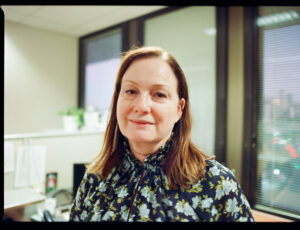 |
The clinical team have been supported throughout the rollout (and during the project phase) by Rebecca Moore (Program Director for the Medicine Stream at Metro North), Leah Thompson (Program Manager) and Dr Jeffrey Rowland (the Director of Internal Medicine at Prince Charles Hospital and the Executive Director of the Medicine Stream for Metro North). For them, the VAD legislation enables patient choice. As both Lisa and Jeffrey explain, being involved in this journey has been an amazing privilege:
“It’s been amazing the journey that we’ve been through, but we’ve managed to get the right people in to do all the right stuff. The patients all say to me how, how appreciative they are of the fact that we provide the service and how amazed they are at how easy it has been to go through the process, they thought it would be much more complicated for them. It is kind of complicated at our end, but we keep that away from the patients” – Jeffrey
“So for me it’s a real privilege. I go in and fulfil their wish. They are welcoming, they are completely at peace with the decision… they have often had years and years and years of suffering, and the best palliative care in the world sometimes just cannot relieve the symptoms” – Lisa
Kobie’s Story
In this impactful audio story, Kobie Clay, a clinical nurse consultant in the Voluntary Assisted Dying (VAD) program, shares her experiences and challenges faced while administering VAD. Despite encountering judgment from faith-based individuals and clinicians, Kobie remains committed to honoring patient choice and providing compassionate care. Her dedication to patient autonomy and VAD’s profound impact on a small number of Queenslanders is the legacy she aims to leave in the healthcare system.
“The legacy is choice. Health care systems are innately such a power imbalance of clinicians telling patients how to do things… That’s what this legislation is the opposite of, it’s providing choice, and that’s the legacy” – Kobie Clay
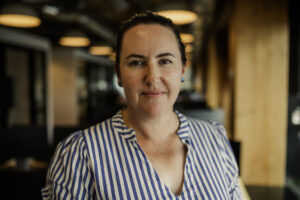 |
Lisa’s Story
In this emotional and candid conversation, Lisa Blyth, a clinical nurse consultant in the Voluntary Assisted Dying (VAD) program, shares her experience administering VAD to patients. In just a few weeks, she had already administered the VAD substance to five patients and was deeply committed to fulfilling their wishes and providing compassionate care. However, the biggest challenge she faces is the shortage of doctors willing to support the program due to limited time and the need for compensation. Despite the challenges, Lisa finds fulfilment in providing patients with a peaceful and dignified death.
“For me, it’s not just giving them a substance. For me, it’s fulfilling the desire to alleviate their pain. So it’s more than a job. It’s me giving them what they want” – Lisa
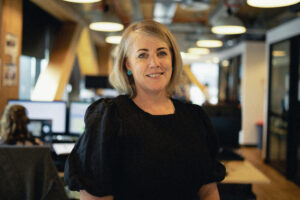 |
The Service Provider Perspective – Angels in Aprons
Angels in Aprons provide personal in-home care and respite services, and have become intimately involved in VAD. Founder Sharon Douglas recalls how, on Friday 3rd March 2023, her organisation were honoured to be a part of their first assisted death and how Vivienne Hannah (an Angel from the organisation) stood alongside Mr Smith’s family. Vivenne had connected with the patient, Mr. Smith, through their shared interests in history, music, and classics, felt privileged to support him to “pass on his terms, on his time, and in a way that provided him with the dignity, compassion and respect his 90 years deserved”.
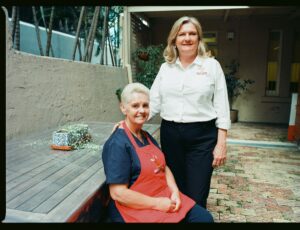 |
Vivenne describes stepping back, to allow the son to be with his father in his final moment. However, she remained close by, observing from the doorway – and as her eyes met Mr Smith’s, she reached out to touch the top of his foot to offer a silent reassurance that she was there. His son held his hand, and in an atmosphre filled with flowers, candles and care, Mr Smith died and was reunited with his beloved wife, “embarking on his next adventure, embraced by the angels who had gone before him”. This first VAD experience was transformative, as Sharon recalled:
“I realised this would be a moment I will always remember; a moment of enlightenment for us all to share, and another thread that binds us together and reminds us of why we do what we do. To support and give people the very best quality of care, in the comfort of their own home for as long as they wish to. With love in my heart and treasuring being the very best at what we do…” –Sharon.
In this heartfelt conversation between Sharon Douglas and Vivienne Hannah from Angels in Aprons, they discuss their involvement with Voluntary Assisted Dying (VAD) and their experiences with patients, particularly focusing on their time with Barry, a renowned child psycho psychiatrist and researcher. Both women express their mixed emotions and humbling experiences in assisting patients with VAD.Vivienne shares her initial apprehension about being part of the VAD process but finds comfort and inspiration in Barry’s determined and composed demeanour. She describes the profound connection she formed with him, helping him prepare for his final moments with compassion and respect.Sharon and Vivienne reflect on the meaningful relationships they build with patients and their families, emphasizing the long-lasting impact of their work. They feel honoured and privileged to be a part of this profound and life-changing journey, offering patients the opportunity to have a peaceful and dignified end of life.
“So at that time I just went and put my hand on the top of the sheet were his foot was to let him know I was here and his son was holding his hand. And, you know, it was beautiful the way we had flowers, there were candles. It was and that’s the part of the process I enjoy” – Vivienne
Listen to Sharon & Vivienne’s Story
Implementing VAD
Leah’s Story
Leah Thompson, the program manager from Metro North’s Voluntary Assisted Dying (VAD) team shares the process of implementing the team and her role in it. With limited funding, they carefully selected a team consisting of a doctor, nursing support, administration, and allied health professionals. Despite challenges in recruitment, they eventually found passionate and skilled team members who embraced the VAD mission.
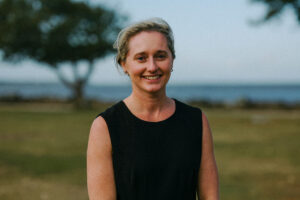 |
Dr Rowland’s Story
Dr Jeffrey Rowland, the Executive Director of the Medicine Stream for Metro North, was passionate about implementing Voluntary Assisted Dying (VAD) within the health service. When the legislation was announced, he volunteered to help set up the VAD program for Metro North and ensure it was implemented effectively. The process of setting up the program was complex, with legislation needing to be interpreted and adapted to work clinically. While they faced challenges, the team managed to establish efficient systems to provide VAD services without receiving funding from the Queensland Government.
Dr Rowland’s motivation for being involved in VAD is rooted in the belief that patients should have the right to make decisions about their end-of-life care. He advocates for providing patients with the choice to have a dignified and controlled end of life, surrounded by the people they love. The team’s current focus is on providing excellent patient care and improving the program to match patients with doctors from relevant specialities. Despite facing opposition, Dr Rowland remains committed to providing VAD services and ensuring patient autonomy in their end-of-life decisions.
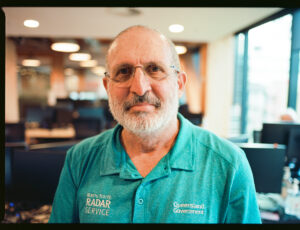 |